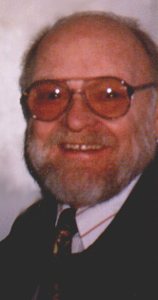| Theatre | U.S.A. | ||||||||||||||||||||||||||||||||||||||||||||||
BAFA © 2010. All material here is copyrighted. See conditions above. |
Colin Taylor, theatre, U.S.A. |
The museum in Rochester, NY, where I grew up, had a children's theater
program which presented plays about cultures and customs all around the
world. I belonged to that theater group for years, doing once-a-month
performances and rehearsing after school and on Saturdays. I don't remember
much of that, but it must have influenced greatly my curiosity about people
from other places and other cultures, because I have always been attracted
to people who see the world differently than I do. |

| ||||||||||||||||||||||||||||||||||||||||||||||
I took Shakespeare, mostly because I knew I would need that if I wanted to become an English major. I fell in love with learning, and with Shakespeare. Wilbur Dunkel, my professor, entranced me by emphasizing the dramaturgy in Shakespeare's early plays. He showed me how to take a scene apart, to look with a writer's eye and a linguist's appreciation at the early, struggling playwright. Then R.J. Kaufman, another giant in my academic life, took over during the second semester, putting Shakespeare's major works into a historical context. I admired his eidetic memory, his critical insight, his sense of language and poetry, and his tolerance of my brash certainty, my harsh negativism. He personified for me what a teacher could be, by fostering the potential in his students, and what a person could be, by accomplishing a meaningful, productive life. I went from the University of Rochester to teaching high school English in a small country school in upstate New York, and from there to three years at the Harley School, a fine private country day school. I had been bitten by the theater bug, though, and as soon as I completed my master's degree at the University of Rochester I made my way to the University of Colorado, where I could teach English as a graduate associate instructor, pursue a degree in the Communication and Theater Department and participate in the Colorado Shakespeare Festival... My approach to theater has changed since I have been a Bahá´í. Rather than trying to shock people into awareness in a rebellious way, I have now gentled considerably. I see theater as a focused team effort to bring an audience together in unity, a safe place to explore our capacity for empathy, to see into emotions expressed in behaviors, and to recognize our collective potential. Theater is one way to hold our souls to the light, to be touched, and to share. The most effective teaching I have experienced has been around the theater. In the intense effort of shared commitment, one's character becomes an attractant (or a repellant)... Excerpts from Arts Dialogue, March 1999, pages 5 - 7 |
I´m developing a web site at http://members.tripod.com/~Colin_Taylor/home.html | ||||||||||||||||||||||||||||||||||||||||||||||
|
Arts Dialogue, Dintel 20, NL 7333 MC, Apeldoorn, The Netherlands email: bafa@bahai-library.com |